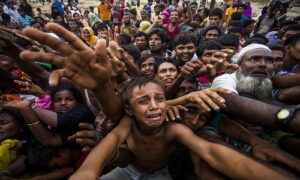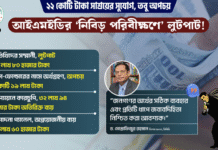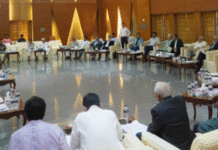Rohingya Genocide Trial: ICJ on course to hold hearings

The Gambia is set to launch a legal battle against Myanmar at the International Court of Justice as it starts hearing the case on Rohigya genocide on Tuesday.
Gambia Attorney General and Justice Minister Abubacarr Marie Tambadou and Myanmar State Counsellor Aung San Suu Kyi will lead the lawyers on behalf of their respective countries during the December 10-12 hearing at the court in The Hague.
The hearing will be held from 10:00am to 1:00pm on Tuesday and Wednesday and from 10:00am to 4:30pm on Thursday (Netherlands local time), according to the ICJ, the top UN court that holds the state parties accountable.
The Gambia is seeking provisional measures to protect the Rohingya from further violence in Rakhine, according to a brief on the case prepared by International Commission of Jurists, a Geneva-based non-profit organisation.
The court can issue such orders to protect the rights of the parties to a case pending the final decision to avoid irreparable damage to the rights of the subject of the case, it added.
According to the case statement, all members of the Rohingya group in Myanmar are presently in grave danger of further genocidal acts. They continue to face daily threats of death, torture, rape, starvation and other deliberate actions aimed at their collective destruction, in whole or in part.
“Lawyers will also ask the judges of the top UN court to issue orders so that Myanmar does not destroy any evidence of massacres that happened in 2016 and 2017 in Myanmar’s Rakhine state,” said Nay San Lwin, campaign coordinator of Free Rohingya Coalition, a global alliance of the Rohingya, which is closely working with The Gambia.
The African country, on behalf of the 57-member Organisation of Islamic Conference (OIC), had filed the lawsuit against Myanmar on November 11, accusing it of violating the UN Genocide Convention.
The move came more than two years after some 7,50,000 Rohingyas fled a brutal military campaign in Rakhine and took shelter in Bangladesh.
The Gambia in its lawsuit said the Rohingyas were facing longstanding persecution and discrimination. From around October 2016, Myanmar military and other security forces began widespread and systematic “clearance operations” against the group.
“The genocidal acts were intended to destroy the Rohingya as a group, in whole or in part, by the use of mass murder, rape and other forms of sexual violence, as well as the systematic destruction by fire of their villages, often with inhabitants locked inside burning houses,” it said.
From August 2017 onwards, such genocidal acts continued with Myanmar’s resumption of “clearance operations” on a more massive and wider geographical scale. These facts are extensively documented by UN independent investigators and corroborated by international rights organisations, the lawsuit said.
Myanmar denies allegations of genocide, saying its army was fighting militants who attacked security posts. Suu Kyi, a Nobel Laureate whose image was tarnished for not doing enough to prevent Rohingya genocide, will try to defend Myanmar at the ICJ, making the same argument.
Several hundred Myanmar nationals are also likely to be present in The Hague to demonstrate their support for Myanmar, according to the Rohingya activists.
“This is a historic case. We have been facing genocide for decades. It’s a chance we will have justice,” Rohingya activist Nay San Lwin told The Daily Star over the phone from Germany yesterday.
Nay will fly to The Hague on Monday.
Over 100 Rohingya activists, mostly from Europe, are going to attend the hearing at the court. Besides, people from a number of other ethnic communities will be there, Nay said.
International Commission of Jurists said any decision by the ICJ shall be communicated to the UN secretary-general for transmission to the UN Security Council. The court may also request information from the parties on any matter concerning implementation of the provisional measures.
Prof Mizanur Rahman, an expert on international law at Dhaka University, said if the ICJ primarily finds evidence of genocide, it can issue an order for provisional measures.
“It would really be a good progress,” he told this correspondent.
Genocide researcher Mofidul Hoque, also a trustee of Liberation War Museum, said it was quite unique that Suu Kyi, an alleged perpetrator, would be leading a legal team to The Hague.
Voices of the victims of the alleged genocide have to be very strong and clear during the hearing, he said.
Mofidul said there was enough evidence to prove the case in the court.









